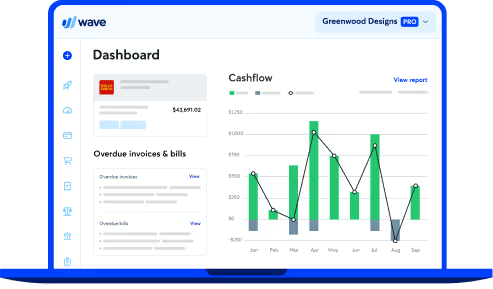
3 payroll tax problems you can’t afford to have
What’s the worst thing about taxes? Paying them. But besides that, it’s trying to understand all the little details and worrying about missing something big that’s going to cost you down the road. It’s completely normal to feel this way, so we want to put your mind at ease. Let’s get started by talking about payroll tax remittance.
Read on for three common mistakes that can happen when you’re remitting taxes and the consequences that occur when making them. Plus, see the best way you can avoid these issues altogether.
1) Missing payments
You’ll need to pay attention to both the report filing deadlines as well as payment deadlines. The IRS website has a good breakdown of the important due dates that you should be aware of.
And what are the penalties for missing payroll tax deadlines? For not filing a report, it’s 5% per month of unpaid tax up to a maximum of 25%. And if you miss the payment deadline, you’ll have the Trust Fund Recovery Penalty imposed on you by the IRS. This is 100% of the unpaid tax amount and also includes interest accrued over time—definitely not something you want to experience first-hand!
2) Late payments
Depending on your state and how much your average tax payment is, you could be in one of several different tax payment schedules: next day, three-day, five-day, monthly, quarterly, or annually. Make sure you’re familiar with the appropriate deadlines for both reporting and depositing the amounts that you owe.
The following figures are just at the federal level – additional state and local penalties may apply. The penalties for late deposits are:
- 2% if the amount is one to five days late
- 5% if it’s six to 15 days late
- 10% if it’s 16 or more days late
If the IRS has specifically sent you a notice to collect a late deposit, you’ll be charged 15% if you’re more than 10 days late to make that payment.
3) Manual mistakes and bookkeeping errors
Mitigating risk and reducing unforced errors are part of what separates a truly great entrepreneur from his or her peers. No matter what system you’re using to currently calculate payroll for your small business, the following issues can cause you problems if you’re not careful:
- transferring written information to a digital format
- keeping tax information in more than place and not updating them all consistently
- relying too heavily on an outside specialist if you’re worried about high turnover
- not maintaining accurate bookkeeping records
- not tracking payroll for your independent contractors alongside your regular employees
With all that being said, mistakes can be a great learning opportunity. By figuring out where and why things are going wrong, you can take the proper steps to correct them.
So what should I do?
If you’re frequently missing or late on your remittances, you could benefit from automatic remittance so you don’t need to worry at all.
And if your problems are mainly the result of manual errors, the solution of integrated bookkeeping will keep all your information consolidated in one place. Our new account reconciliation feature will ensure your books are kept up to date and accurate.
Setting up your business' payroll can be challenging at first, but at the end of the day, getting your employees paid should be a straightforward process.
(and create unique links with checkouts)
*While subscribed to Wave’s Pro Plan, get 2.9% + $0 (Visa, Mastercard, Discover) and 3.4% + $0 (Amex) per transaction for the first 10 transactions of each month of your subscription, then 2.9% + $0.60 (Visa, Mastercard, Discover) and 3.4% + $0.60 (Amex) per transaction. Discover processing is only available to US customers. See full terms and conditions for the US and Canada. See Wave’s Terms of Service for more information.
The information and tips shared on this blog are meant to be used as learning and personal development tools as you launch, run and grow your business. While a good place to start, these articles should not take the place of personalized advice from professionals. As our lawyers would say: “All content on Wave’s blog is intended for informational purposes only. It should not be considered legal or financial advice.” Additionally, Wave is the legal copyright holder of all materials on the blog, and others cannot re-use or publish it without our written consent.


























